Story sequencing Reading Comprehension Worksheets for Ages 3-6
19 filtered results
-
From - To
Enhance your child's reading comprehension skills with our engaging story sequencing worksheets designed for ages 3-6! These interactive worksheets help young learners master the important skill of organizing events in a story, boosting their understanding and retention. Each activity features vibrant illustrations and age-appropriate texts that capture children's imaginations. Kids will have fun putting story elements in the correct order while developing critical thinking skills. Perfect for parents and educators, these worksheets are simple to use and can easily be incorporated into daily learning routines. Start your child’s journey to becoming a confident reader with our story sequencing resources today!
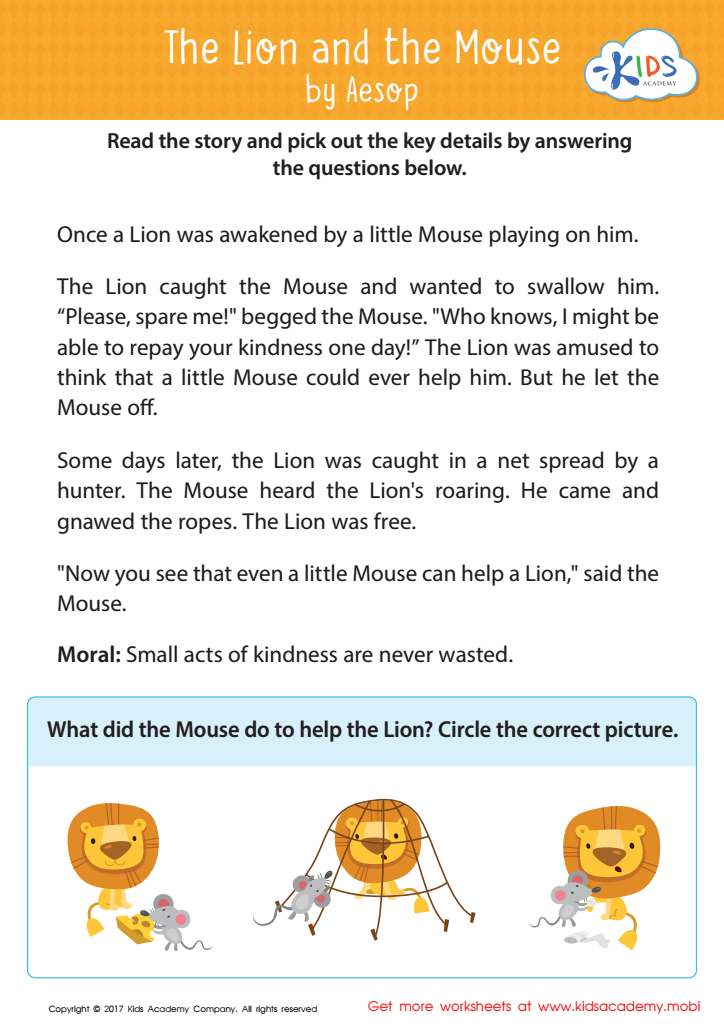

The Lion and The Mouse Sequencing Worksheet
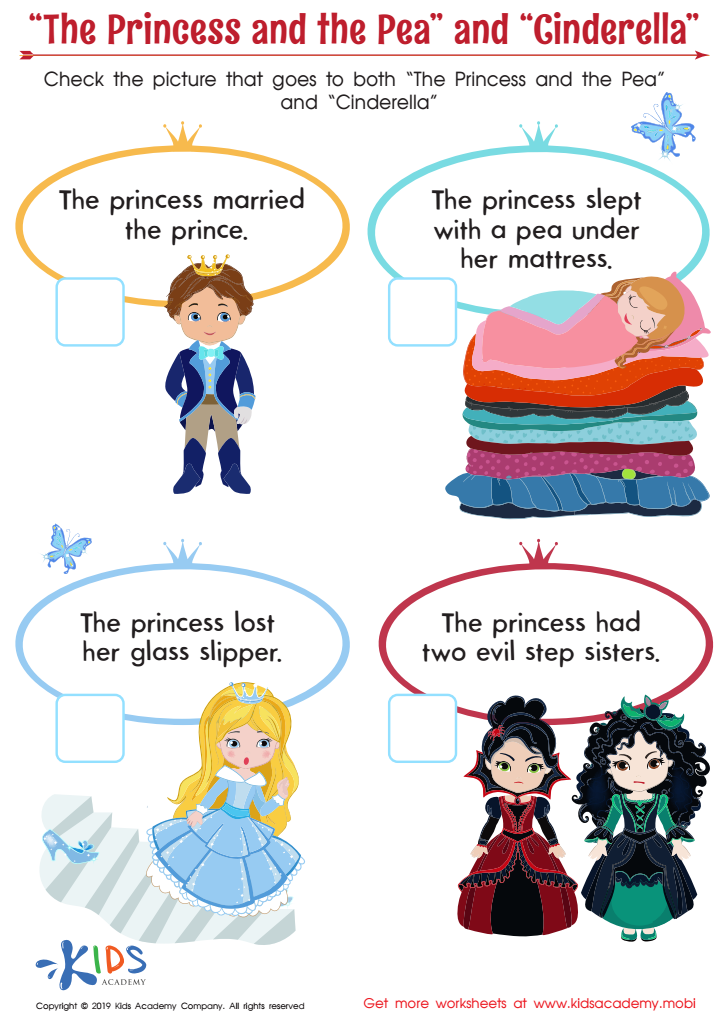

“The Princess and the Pea” and “Cinderella” Worksheet
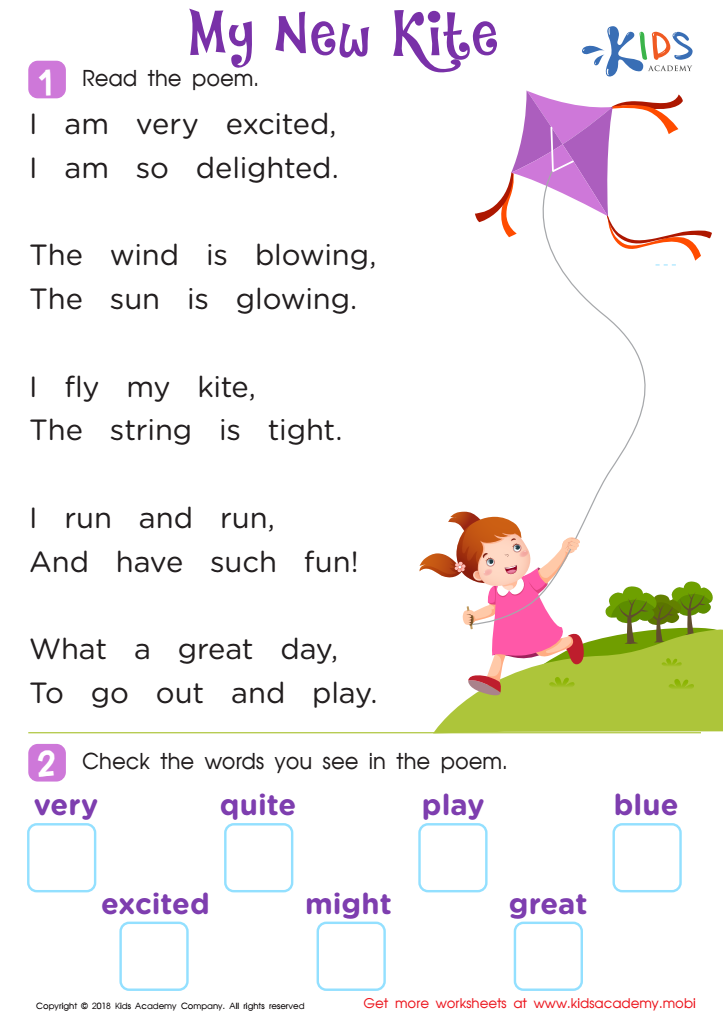

Poem: My New Kite Worksheet
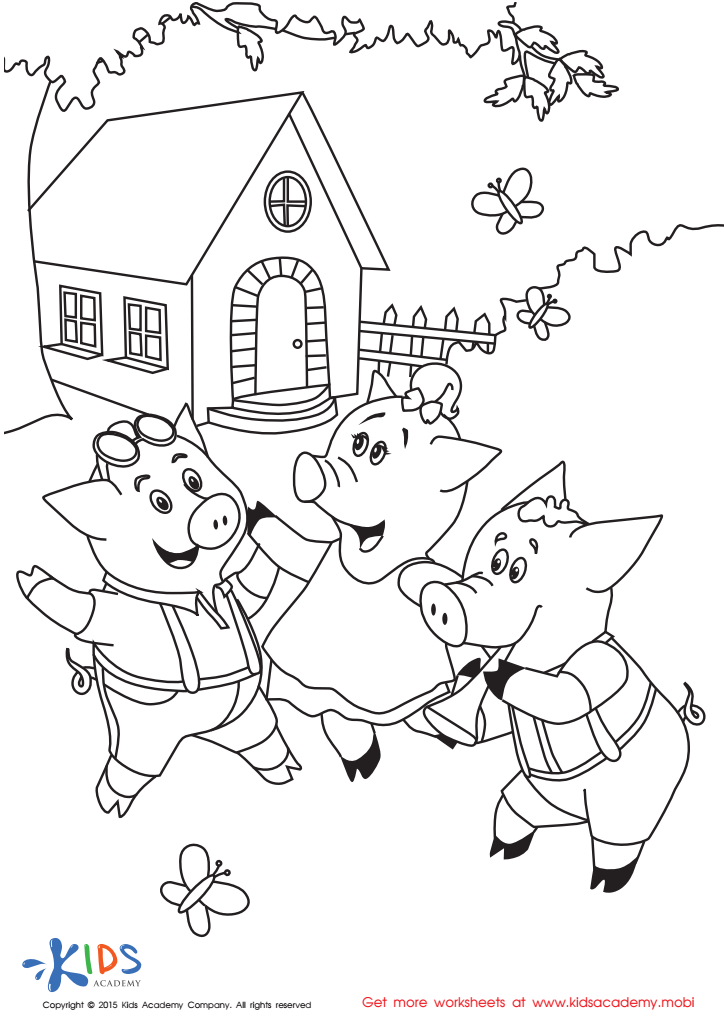

Folktales Printable PDF Worksheet: The 3 Little Pigs
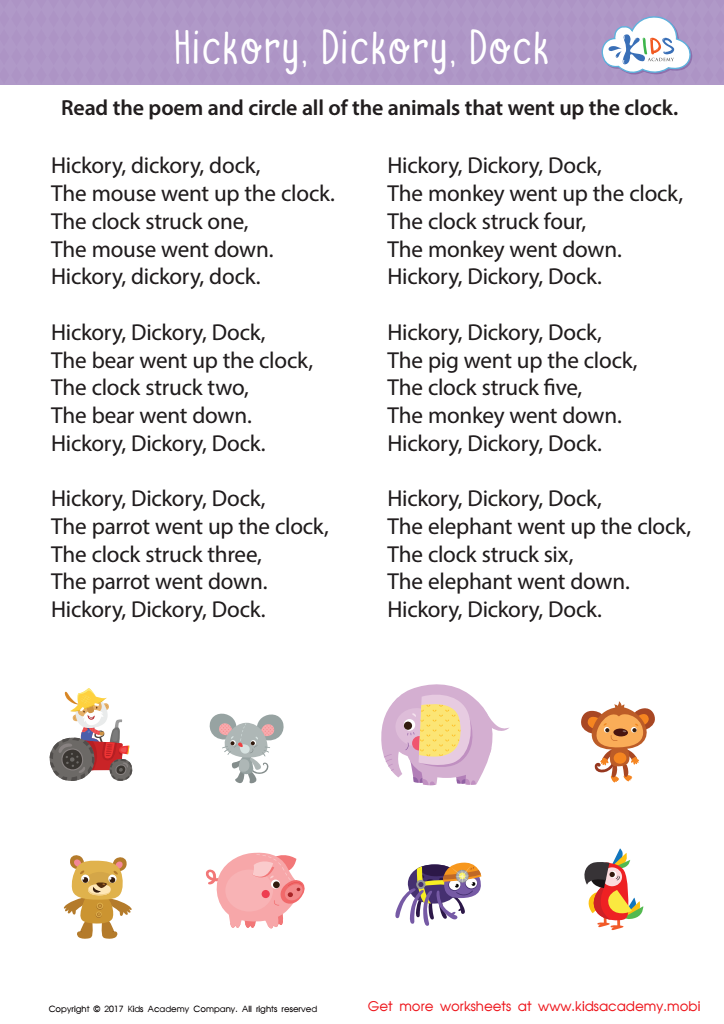

Hickory Dickory Dock Sequencing Worksheet
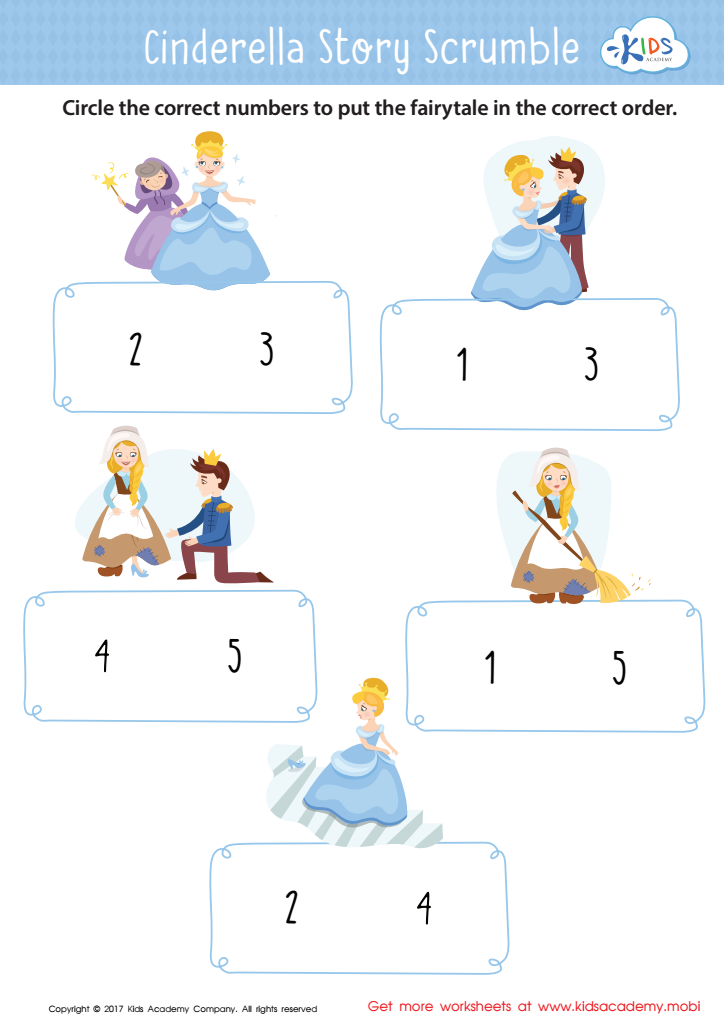

Cinderella Story Sequencing Worksheet
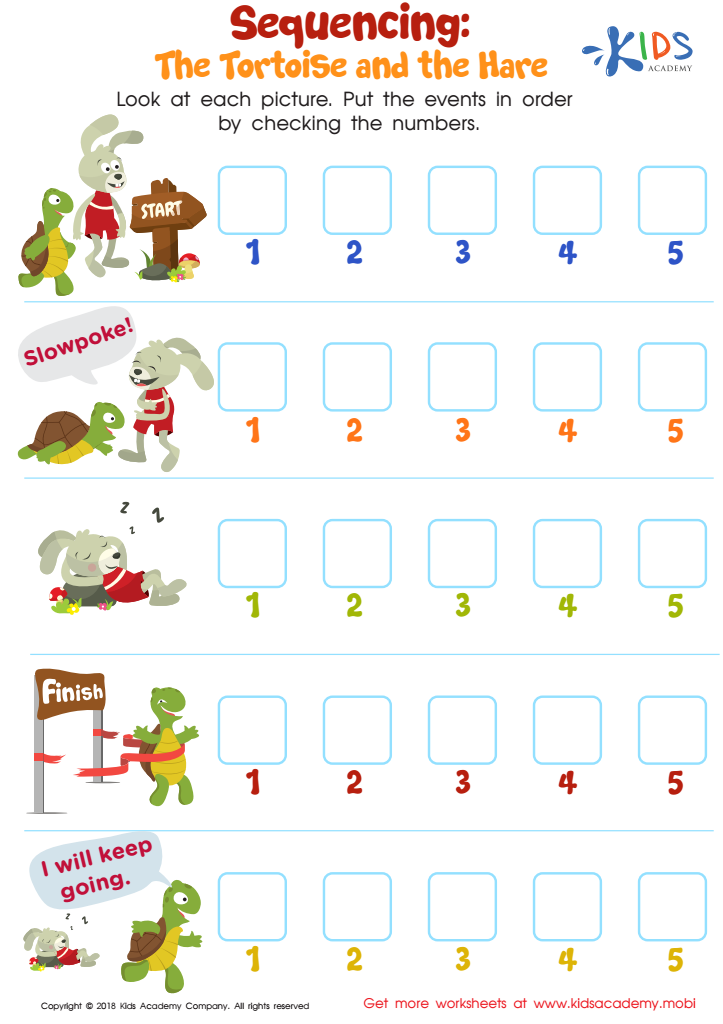

Sequencing: The Tortoise and the Hare Worksheet
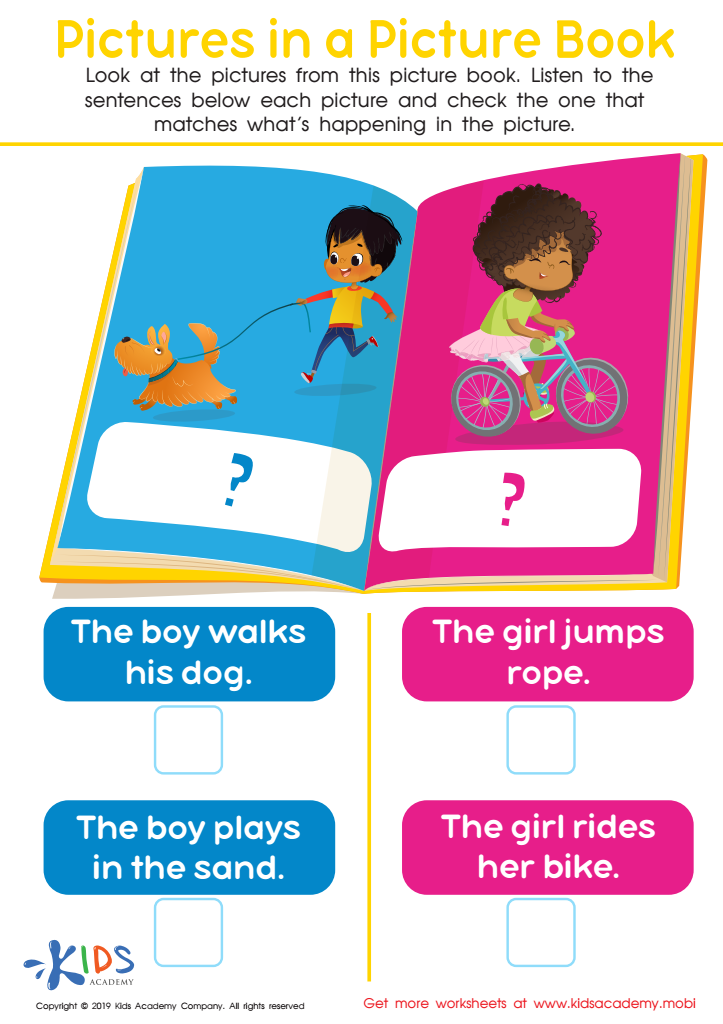

Picture in Books Worksheet
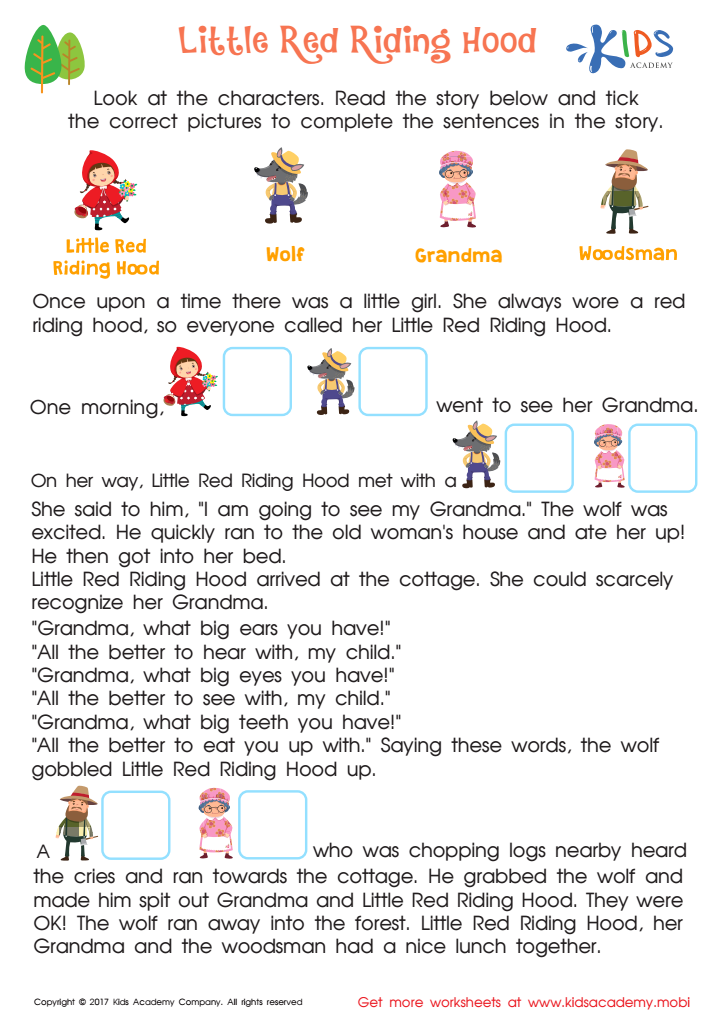

Little Red Riding Hood Printable
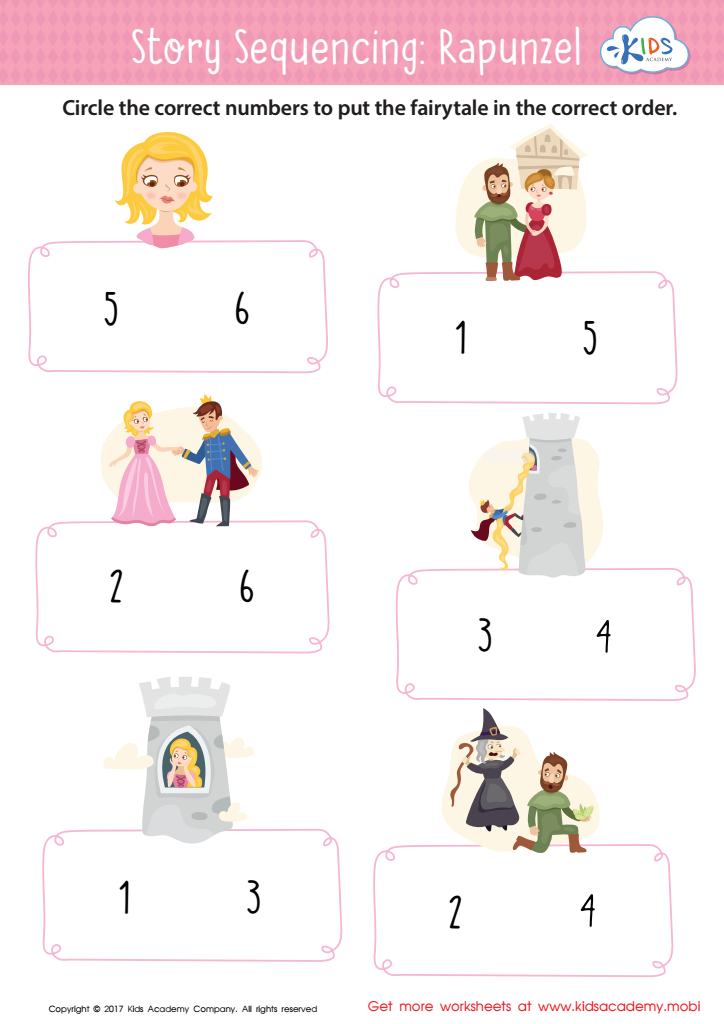

Rapunzel Story Sequencing Worksheet
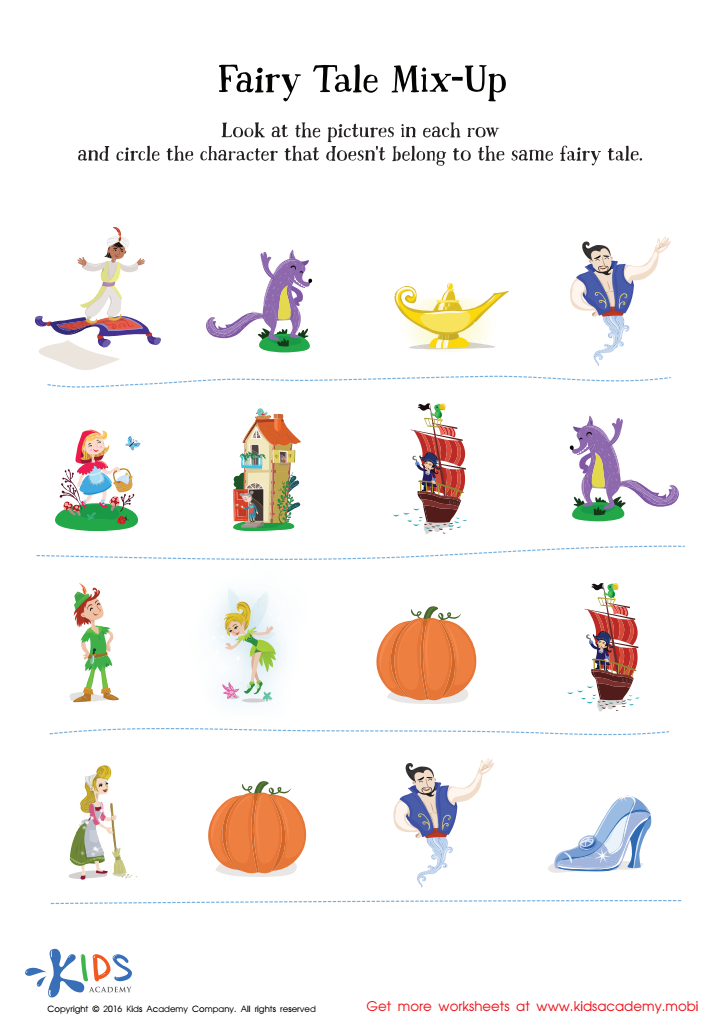

Fairy Tale Worksheet: Story Mix Up
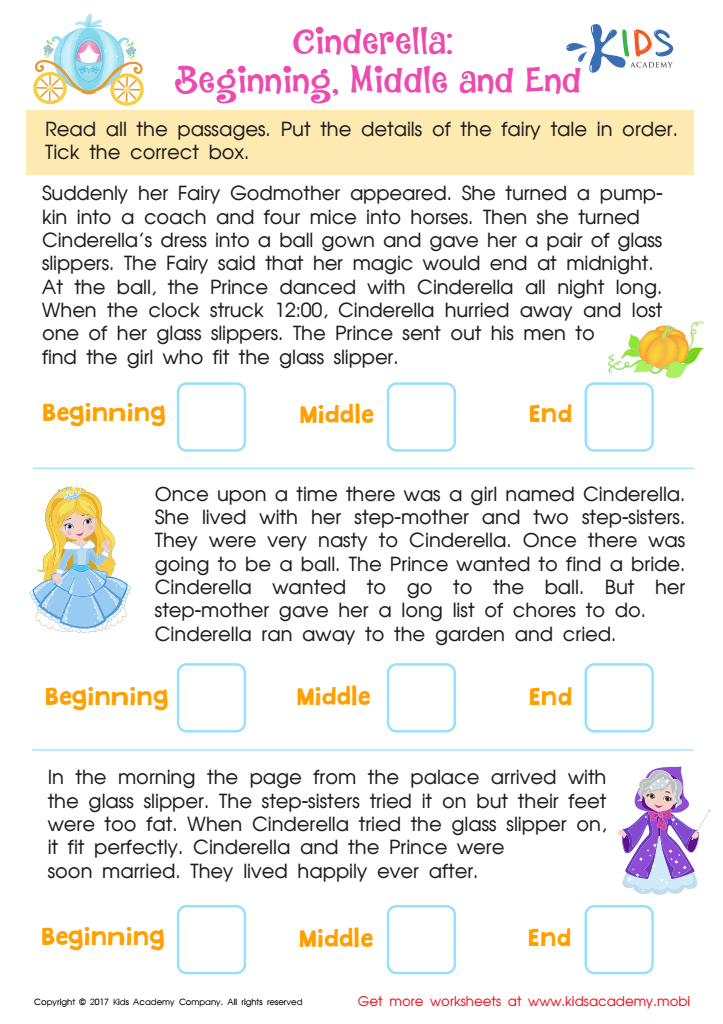

Cinderella: Beginning, Middle and End Worksheet
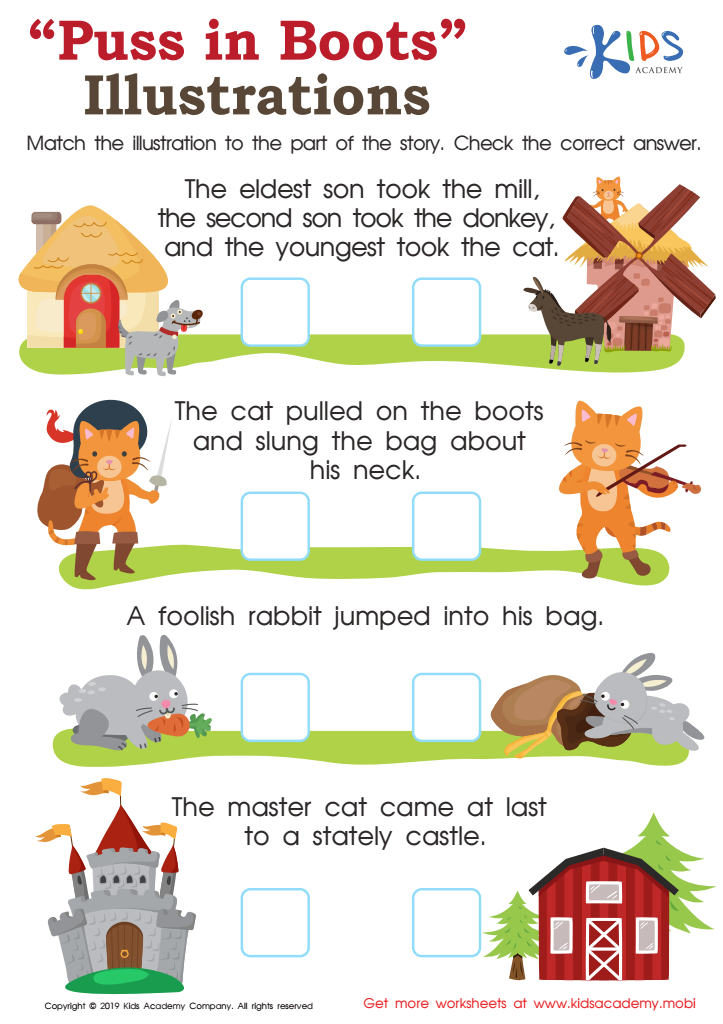

Puss in Boots Illustrations Worksheet
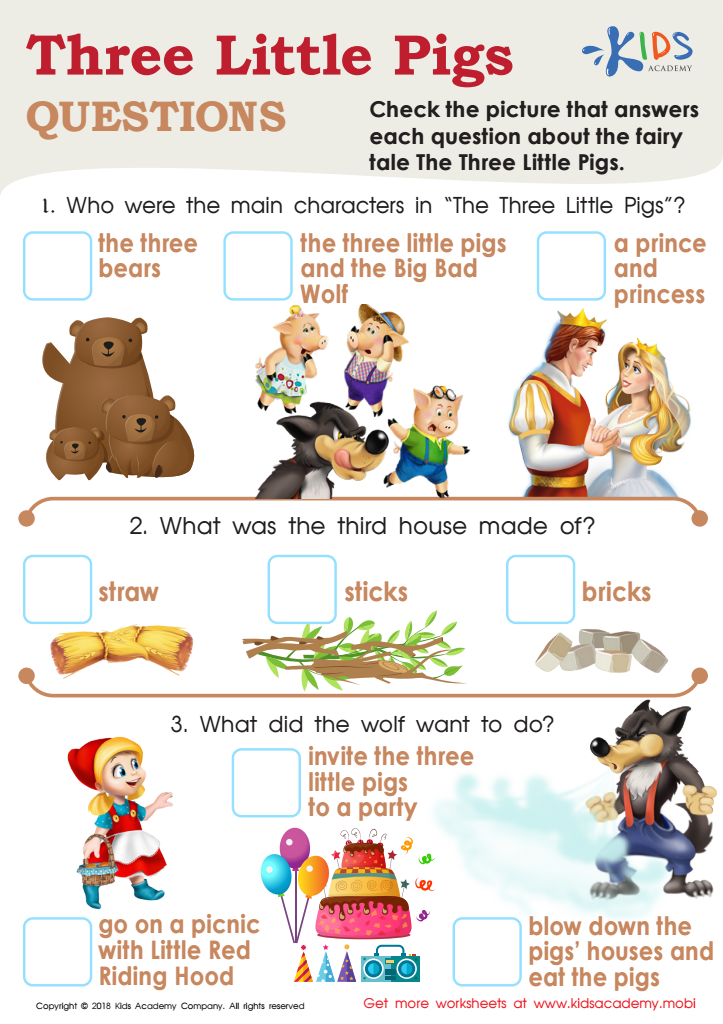

Three Little Pigs Questions Worksheet
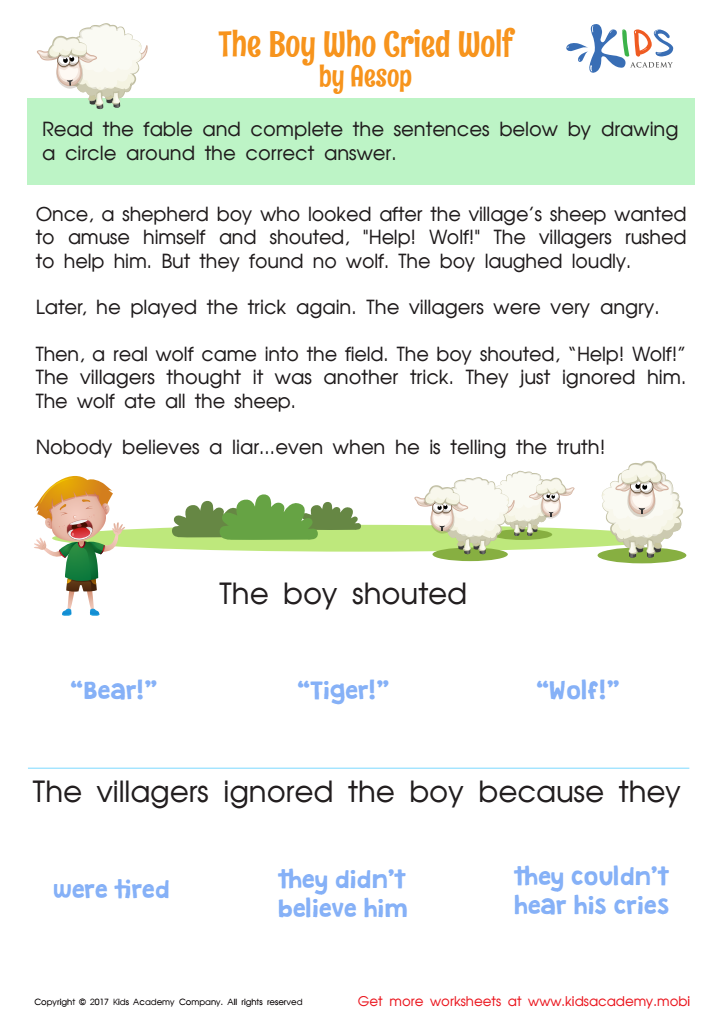

The Boy Who Cried Wolf Worksheet
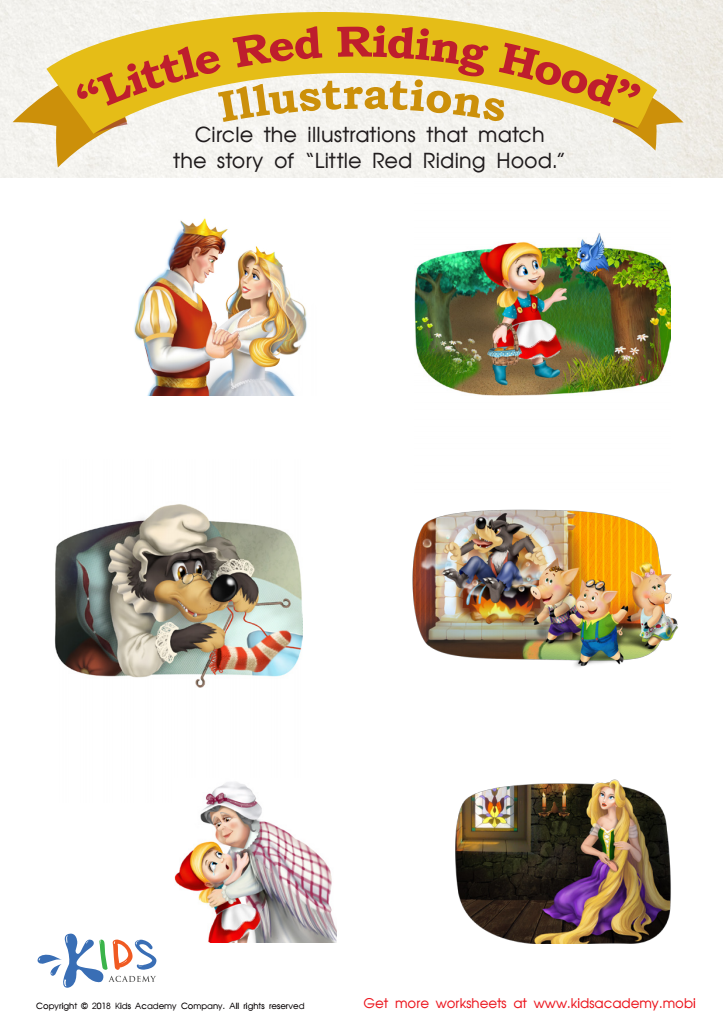

Little Red Riding Hood: Illustrations Worksheet
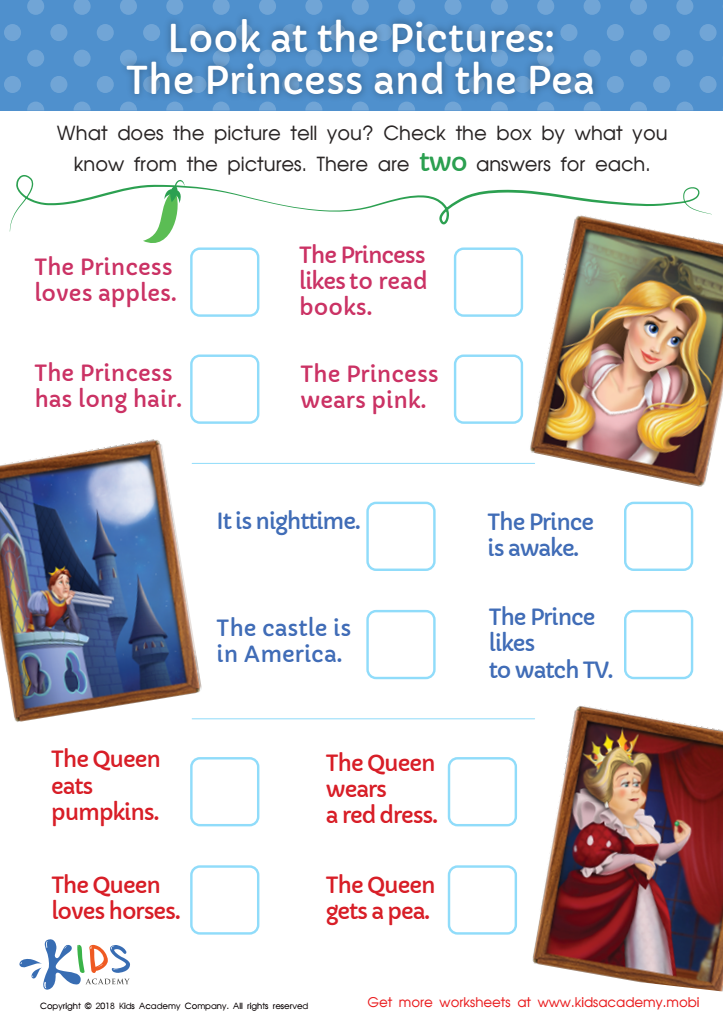

Look at the Pictures: The Princess and the Pea Worksheet
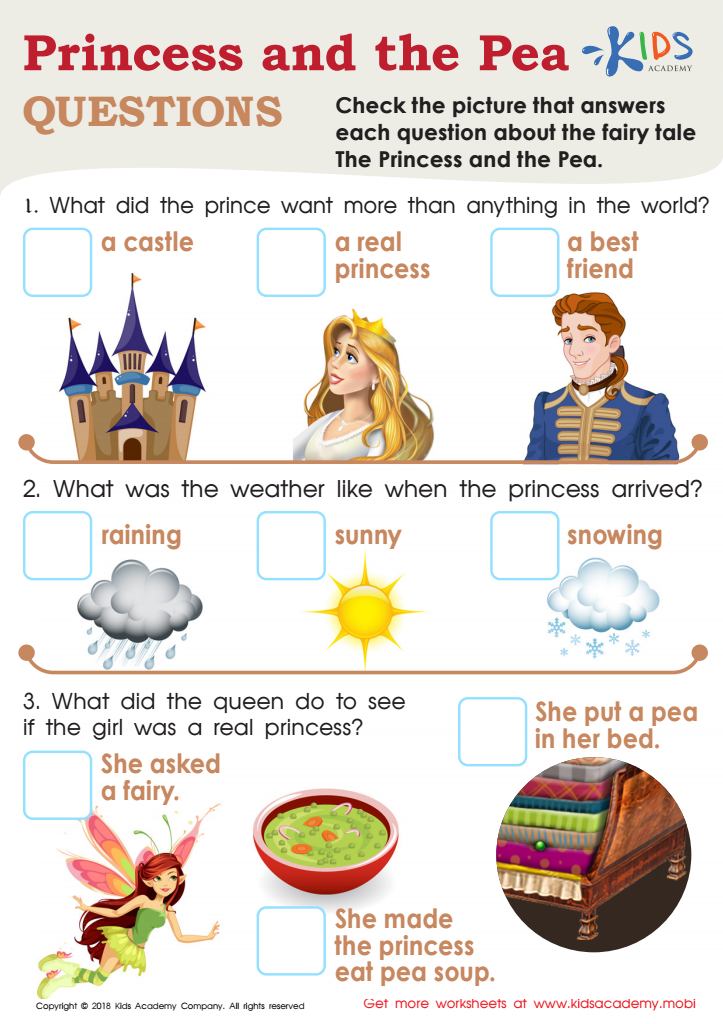

Princess and the Pea Questions Worksheet
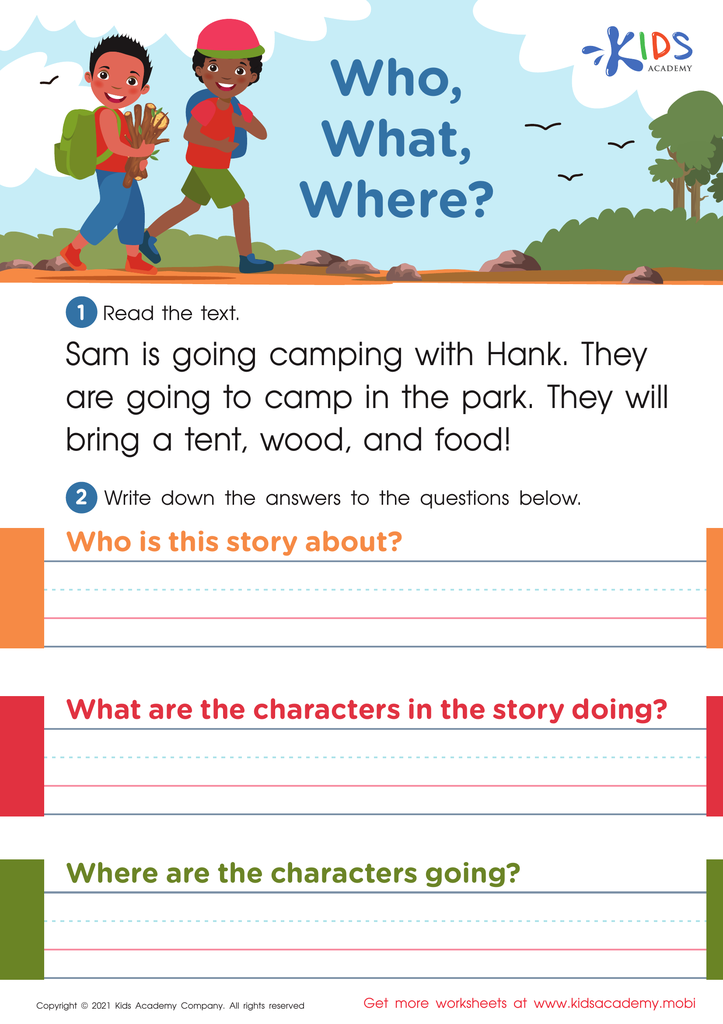

Who, What, Where? Worksheet
Story sequencing is a crucial skill for children aged 3-6, impacting their reading comprehension and overall literacy development. For parents and teachers, understanding this skill's significance can greatly enhance a child's learning experience.
First, story sequencing helps children learn to recognize the structure of narratives, including beginning, middle, and end. This foundational understanding fosters better comprehension, as children become adept at anticipating and predicting events in a story. By identifying the sequence of actions, children learn to grasp cause-and-effect relationships, enhancing their critical thinking skills.
Furthermore, engaging in sequencing activities promotes language development and vocabulary acquisition. As children describe events in order, they practice using descriptive words and phrases, enriching their communication skills. This also cultivates their ability to recall details, which is integral to expressing thoughts and ideas.
Moreover, story sequencing can nurture creativity and imagination. Children can practice retelling familiar stories or creating their own narratives, encouraging individuality and self-expression. Overall, a strong grasp of story sequencing not only boosts reading comprehension but also lays the groundwork for effective communication and lifelong learning, making it essential for parents and teachers to prioritize this skill in early literacy development.
 Assign to My Students
Assign to My Students





















